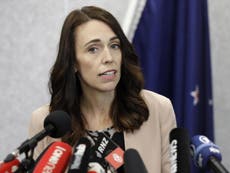Printing money to tackle the economic crisis created by coronavirus is a good idea. Here's why
Monetary financing and hyperinflation in other collapsing economies resulted from governments destroying tax revenues, not short term policies to get through an unprecedented emergency

A lot of excitement was generated by a curious bit of news about government financial accounting that would not normally be of much interest to anyone except those interested in monetary arcana. The government is to make extended use of its overdraft facility at the Bank of England, called the “ways and means account”, to help smooth its financing of the dramatic ramping up of spending on measures to support those who are losing income during the Covid-19 lockdown.
This looks like the modern day equivalent of using the printing presses to finance government expenditure – something that has echoes with dramatic slides into government collapse and hyperinflation, as in the Weimar Republic and more recently Zimbabwe and Venezuela. But although it should certainly cause a raising of the eyebrows – the government has managed to encourage more demand at recent auctions for its debt than there was supply, and has the backing of the Bank of England already with an initial £200bn of quantitative easing underway – there is no reason (yet) to assume that current way of doing monetary policy has folded.
First, we have been here before: the government used an expansion of this “overdraft” to the tune of £20bn during the financial crisis. Second, the declared intention is that this, like before, is a temporary measure. The electronic money created for the government by the Bank of England will be reversed later on, using the proceeds from future sales of government debt.
Sceptics might wonder whether this comes to pass and point to the original quantitative easing program launched by the bank in March 2009 when its Monetary Policy Committee ran out of room to stimulate with its normal tool, the interest rate. Then governor at the time, Mervyn King, was at pains to insist that the purchases of debt by the bank (which have the same effect as electronic money sent to the Treasury through the ways and means account) would be reversed. However, at the point the bank launched its new program of quantitative easing, none of it had been reversed.
In fact there were good reasons why not. Tighter regulations on banks pushed them to hold more of their assets in liquid form, increasing their demand for central bank money; and the heightened atmosphere of risk after the crisis encouraged the wider economy to do the same. As it turned out, a lot of the increase in the money supply that happened as a consequence of quantitative easing ended up accommodating increases in money demand, and was therefore needed to hit the inflation target, and did not pose a threat to it.
This takes us to the real issue at hand: not whether accounting between the Treasury and the Bank of England satisfies a textbook definition of monetary financing or not, but whether the bank’s monetary policy mandate has been set aside by the government as it tries to deal with the crisis.
The bank’s inflation target mandate (and therefore price stability) is not an end in itself, but a means to promoting the government’s economic policy. So is possible to conceive that a time would come when other things should take precedence.
In such circumstances the bank would expect that this was done by invoking the escape clause in the Bank of England Act that allows them to take control of the levers of policy in emergency situations. The government has not taken this step – and the bank has not raised any objection to the “ways and means” expansion either.
At this point, those worried about whether monetary financing will lead us onto the path of Venezuela should not yet be concerned. There is no evidence that the monetary policy mandate has been set aside yet. Monetary financing and hyperinflation in other collapsing economies resulted from governments there unintentionally destroying tax revenues through expropriation, extreme corruption and incompetence.
The UK government has deliberately shut down tax revenues as part of a benign public health strategy to reduce how much we contact each other, stem the spread of Covid-19, and save lives – a strategy which seems to command widespread support so far.




Join our commenting forum
Join thought-provoking conversations, follow other Independent readers and see their replies